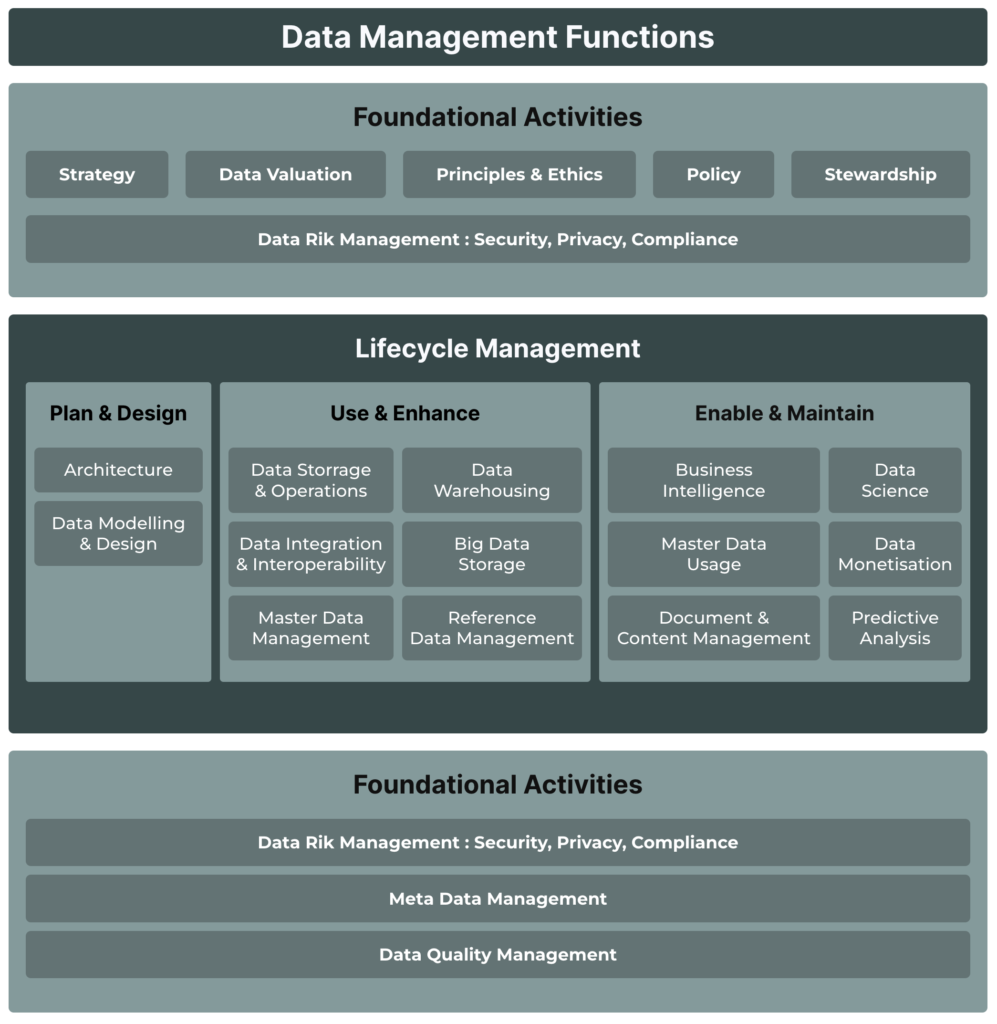Moving from engineering and project management to the digital realm, I initially saw data management as complex and dull. I used to think it was best left to IT experts. However, my view has drastically changed. I now understand that data management is about more than just technical details. It’s a transformative process that highlights human elements and change management, often beyond mere technical skills.
What is Data?
Data encompasses collected and analyzed facts, figures, and details that guide decisions. It appears as numbers, text, images, or sounds, sourced from methods like observation or research. Whether from advanced instruments or simple spreadsheets, accurate data analysis transforms it into a valuable tool for smarter decision-making.
What is Data Management?
Data management involves secure, efficient, and economical data handling, covering storage, governance, and security. It ensures data remains accessible and reliable. For instance, effective data management helps construction firms accurately forecast costs and schedules. They achieve this by analyzing historical data on material use and labor. This results in optimised resource allocation, reduced waste, and more competitive bids, directly impacting profitability and client satisfaction.
Why DAMA’s Framework?
The Data Management Body of Knowledge (DAMA) combines expertise in the data management domain. The Data management function framework provides insights into all elements of data management, from governance and stewardship to architecture and modelling. By adopting this framework, Clarity Company has not only aligned with best practices but also leveraged a structured approach to managing one of our most valuable asset: data.
Transforming Data Management: A Strategic Approach with DAMA’s Framework
The core of DAMA’s Data Management Function Framework lies in one essential principle: enabling organizations to fully leverage their data assets. It marks a transformative journey to alter the perception, management, and use of data throughout its lifecycle, affecting numerous organizational facets and involving the entire company.
The Human Aspect: Culture Change and Strategic Transformation
DAMA’s framework highlights the importance of cultural and strategic shifts for successful data management integration. At Clarity Company, our approach starts with assessing current maturity levels and then developing a customized strategy for thorough transformation.
Before, data was just something we reported. Now, it’s at the heart of every decision we make.
Project Manager
Organisational Culture Shift: Adopting DAMA’s Data Management Framework necessitates a shift in organisational culture towards valuing data as a strategic asset. This shift is fundamental to fostering an environment where data-driven decision-making becomes the norm, rather than the exception.
Navigating Organisational Changes: The transformation journey requires organizational changes, such as team restructuring and new roles in data governance and management. These steps are essential to establish a strong infrastructure for our data management objectives.
Skills and Competencies Development: Being successful in generating value form data demands the development of specific skills and competencies among our team members. From data stewards to IT professionals, employees are to be equipped with the necessary knowledge to navigate the complexities of data management effectively.
For example, becoming a data-driven organisation, adopting DAMA’s principles involves the establishment of data steward roles. These stewards serve as the essential bridge between IT and business units, ensuring that data practices meet both technical standards and business practices. By training individuals from the business in data governance and quality management, we enable them to effectively manage our organisation’s data assets as data stewards.
The Path Forward
With DAMA’s Data Management Framework, Clarity Company helps organisations in building their data driven organisation. As we navigate the challenges and opportunities that come with Data Management, the principles of transformation and change management remain at the forefront. By committing to these principles, we are not just managing data or implementing new technologies; we aid organisations to transform and thrive in an increasingly data-centric world.
I invite you to join us in reimagining what’s possible in a data-empowered world.



